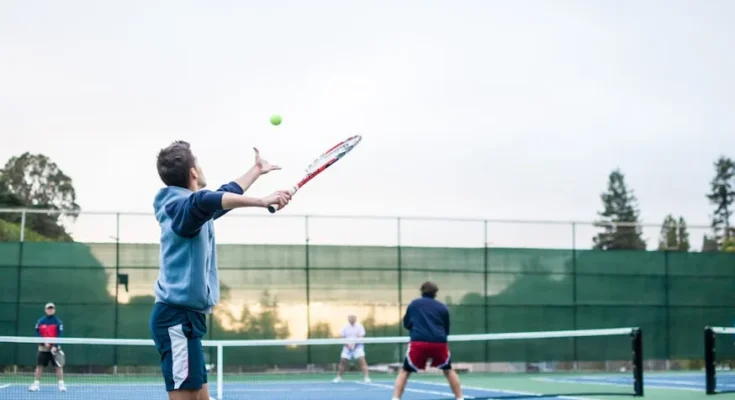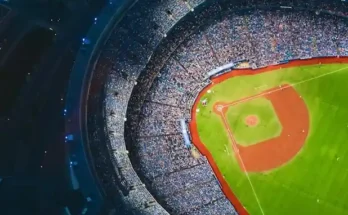Sports are everywhere—on screens, in stadiums, in dusty backyards, and in crowded streets. They are more than mere competition. They are theater, culture, ritual, and rebellion all wrapped into one moving spectacle. Across time and continents, sports have captivated human hearts, sparked revolutions, created icons, and even healed nations.
So what is it about sports that makes us care so deeply? Why do millions cry over a missed penalty, cheer at a buzzer-beater, or rally behind a jersey? Let’s explore the world of sports—not just as games, but as a reflection of the very soul of humanity.
The Ancient Roots of Modern Glory:
-
Where Competition Began
The love of sport runs deep in human history. Long before football stadiums and Olympic medals, people competed for honor, survival, and storytelling. Ancient civilizations used sports as ritual and symbol—Greek Olympians sought the favor of gods, while Mayans played ball games that could determine life or death.
Sport was never just about who was faster or stronger. It was tied to religion, society, and destiny. Gladiators fought in Roman arenas to entertain and to affirm the empire’s brutal elegance. In Africa and Asia, traditional games shaped community identity and generational learning. Even then, sport was a spectacle—and something sacred.
-
The Birth of Global Sport Culture
Fast forward to the 19th and 20th centuries, and sports took on new life with formal rules, clubs, and international tournaments. From cricket fields in England to basketball courts in America, sports grew beyond borders, helped by colonization, technology, and eventually, television.
And with each era, sport evolved—from war games to weekend hobbies, from political pawns to billion-dollar industries.
Sports and the Human Spirit:
-
Passion Beyond Explanation
Try explaining to someone why a grown adult cries when their team loses. Or why people paint their faces, chant at the top of their lungs, and spend fortunes just to watch others play. The answer isn’t logical—it’s emotional. Sports tap into something primal in us: the desire to belong, to hope, to win.
The highs and lows of sports mirror life itself. There’s triumph, heartbreak, underdogs rising, and giants falling. In ninety minutes or four quarters, a story unfolds—and we are all part of it.
-
Heroes Made on the Field
Think of Muhammad Ali standing tall beyond the ring. Think of Serena Williams redefining power and grace. Think of Messi, Sachin, LeBron, or Naomi Osaka. Sports creates heroes—ordinary people who become legends.
They don’t just inspire us with what they do physically, but who they become in the process. Grit, discipline, integrity, resilience—sports don’t just reveal character, they build it.
Unity in a Divided World:
-
When Games Heal and Unite
One of the most beautiful powers of sports is its ability to bring people together. In moments of political tension or societal unrest, a single game can spark collective joy. Nelson Mandela famously used rugby to help unite post-apartheid South Africa. War-torn countries have found brief peace during the Olympic Games.
Sports speak a universal language. It doesn’t matter your accent, your skin color, or your passport—when the ball is in play, we’re all equal participants in the human drama.
-
National Pride and Global Respect
There’s something magical about watching the Olympics or the FIFA World Cup. Flags wave, anthems play, and the world comes together not in conflict, but in competition. Athletes represent not just themselves but their entire nations. And often, in those moments, we see not rivalry, but mutual respect.
In victory or loss, the world is reminded of what connects us: our shared love of the game.
The Business of Sports:
-
From Fields to Fortunes
Make no mistake—modern sports are a business, and a booming one. Teams are worth billions, players sign endorsement deals that rival Hollywood actors, and broadcasting rights are auctioned like treasure.
From ticket sales to merchandise, fantasy leagues to sponsorships, sports have become one of the world’s most profitable industries. Entire cities rise economically when they host major tournaments. Careers beyond the athletes—analysts, marketers, psychologists, agents—have all emerged.
But this commercialization isn’t without criticism. When passion meets profit, things can get complicated.
-
The Price of Profit
With the rise of mega-events like the Olympics or the Super Bowl, questions arise: Who truly benefits? Often, the poorest communities are displaced to build luxury stadiums. Doping scandals, corruption, and exploitation taint the purity of the game.
Yet, despite the flaws, fans return. Because the soul of sport still shines—even through politics and money.
Technology and the Future of Sports:
-
Data, Drones, and Digital Arenas
Today, technology is transforming how we play and watch sports. Advanced analytics track every movement, drones provide aerial views, and virtual reality offers immersive experiences. Even athletes train with AI-based systems that predict injury or optimize performance.
Esports, once dismissed, is now one of the fastest-growing segments of the industry. Millions tune in to watch gamers compete at elite levels, with prize pools rivaling traditional sports.
The line between athlete and avatar is blurring. And the stadium of the future might be your living room.
-
The Human Touch in a Tech World
But no matter how digital things get, the heart of sports remains deeply human. No algorithm can replicate the drama of a last-second goal or the joy of a crowd erupting in celebration. Technology enhances, but it doesn’t replace the raw emotion that only sport can bring.
Sports as a Mirror to Society:
-
Reflecting Change, Leading Movements
From Jackie Robinson breaking baseball’s color barrier to Colin Kaepernick taking a knee, sports have often been at the center of societal change. Athletes have a platform, and when they use it, the world listens.
Gender equality, racial justice, mental health awareness—many of these conversations have advanced on the shoulders of brave sports figures who chose conscience over comfort.
-
The Responsibility of Fame
With fame comes responsibility. More athletes today are using their voice not just to sell products, but to speak truths. They’re reminding us that being a champion isn’t only about gold medals—it’s also about courage, compassion, and conviction.
The Lifelong Impact of Playing:
-
Lessons That Outlast the Game
You don’t need to be a pro to benefit from sports. Playing teaches life skills—teamwork, perseverance, leadership, humility. It helps kids grow into confident adults and gives adults a place to reconnect with joy and play.
Sports provide structure and purpose. For many, the local league or weekend run is more than exercise—it’s therapy, friendship, and passion rolled into one.
-
Finding Joy in Movement
In a world obsessed with screens, sports pull us back into our bodies. They reconnect us to movement, community, and even nature. Whether you’re swimming in a lake, cycling a mountain path, or just shooting hoops with friends, you’re not just burning calories—you’re building memories.
Conclusion:
Sports are one of humanity’s greatest creations. They bring us together, teach us who we are, and give us something to believe in. They hold up a mirror to society—sometimes broken, sometimes brilliant—but always honest.
Whether you play, watch, coach, or cheer, sport will always have a place in your life. Not just because it entertains, but because it uplifts. It is challenging. It connects.
And most of all—it reminds us that no matter how different we may seem, we’re all chasing the same thing: that one perfect moment, where effort meets excellence and the world holds its breath.




